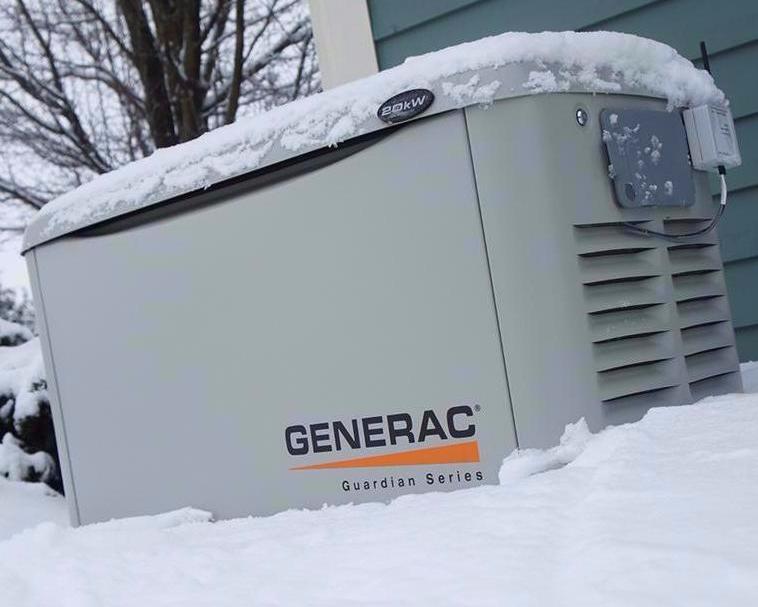Carolina Power & Generators and Generac can help you prepare for this winter.
North Carolina can bring on some harsh winters. Our average temperatures range between 22°F (-5.6°C) to 43°F (6.1°C). Not to mention our “version” of winter weather. ICE. Ice can be one of the most dangerous types of severe weather we experience. In fact, according to Weather.com, only ½ in. of ice can add 500 lb. to the weight of a tree branch. Accumulation of ice can bring down trees and topple utility poles and communication towers. Communication is disrupted and power may be out for days at a time while utility companies repair extensive damage.
A Generac Automatic Backup Generator will keep on your….
Lights to see dangerous debris
Furnaces to stay warm
Refrigerators to protect food and medication from spoilage
Internet to stay connected and monitor the storm
Sump pumps to reduce basement flooding
All while you sit back and relax safely in your home. Your generator will do all the work for you, automatically.
Here are some other helpful tips from Generac to help you PREPARE for this winter.
Create a Family Disaster Plan
- Decide ahead of time where to go if you are at home, school, work, outdoors, or in a car when severe weather hits.
- Agree with family members on a designated place to meet if separated. Include a place directly outside the home and in your city or neighborhood.
- Designate a friend or relative outside the area as your contact if you are separated.
Inspect Home and Yard for Potential Hazards
- Trim or cut down weak trees and branches that could easily be broken off by high winds and ice/snow.
- Keep rain gutters, outside stairwells, window wells, drain lines and down spouts clear to prevent flooding when snow/ice begins to melt.
Protect Your Home’s Openings
- Keep exterior chimneys and vents clear of snow to avoid carbon monoxide poisoning or a fire hazard. This includes the dryer vent.
Secure Backup Power
- Flashlights cannot power refrigerators and candles are fire hazards.
- The American Red Cross suggests that permanently installed stationary home generators are better suited for providing backup power to the home than portable generators.


